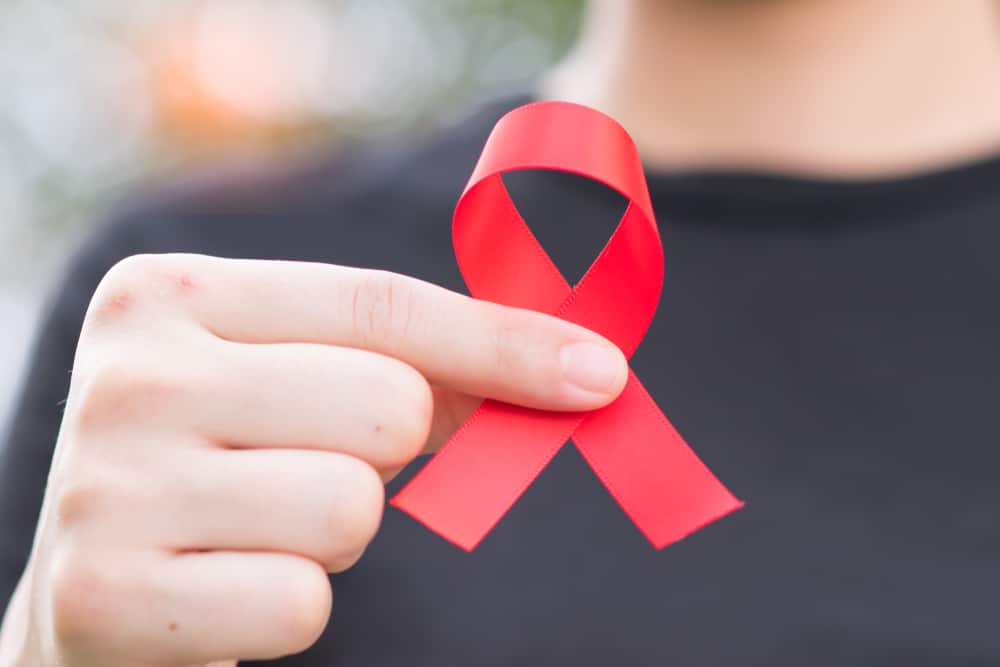Contents:
- Medical Video: Medical Animation: HIV and AIDS
- The difference between HIV and AIDS is that you must know
- HIV is a virus, AIDS is a disease
- A person can get HIV without AIDS
- What can be transmitted is HIV
- HIV does not always show symptoms
- HIV can be diagnosed with a simple test, the diagnosis of AIDS is more complicated
- Different life expectancies of people with HIV / AIDS who were past and present
- However, they both need support and affection
Medical Video: Medical Animation: HIV and AIDS
Often referred to as HIV and AIDS or written "HIV / AIDS", there are still many who do not understand that both are two different conditions. What are the differences between HIV and AIDS that are unknown to people?
The difference between HIV and AIDS is that you must know
HIV is a virus, AIDS is a disease
HIV (Human Immunodeficiency Virus) is a virus that attacks the immune system by destroying CD4 cells (T cells). CD4 cells are a part of the specific immune system responsible for fighting infection.
HIV infection causes the CD4 cell count to drop dramatically so that your body's immune system is not strong enough to fight infection. As a result, the number of HIV viral loads can increase. When your viral load is high, that means your immune system has failed to work against HIV properly.
Meanwhile, AIDS stands for Acquired Immune Deficiency Syndrome. AIDS is considered the final stage of long-term HIV infection. Thus, it can be said that AIDS is a chronic disease due to HIV infection that raises a group of symptoms associated with a decrease in endurance.
People with HIV can be said to have contracted AIDS when the number of CD4 cells in their body drops to less than 200 cells per 1 ml or 1 cc of blood. People with AIDS have a very weak immune system so they are also very vulnerable to the risk of stage-4 HIV-related opportunistic infections such as herpes zoster (snake pox or fire pox), Kaposi's sarcoma, non-Hodgkins lymphoma, tuberculosis, cancer and / or pneumonia.
A person can get HIV without AIDS
HIV is a virus and AIDS is a condition that can be caused by it. However, not all people with HIV will automatically get AIDS later on.
Even though you can have HIV infection without AIDS, anyone who is diagnosed with positive AIDS certainly has HIV. Because once you get infected with the HIV virus, you will have it for life.
Most people with HIV can live for many years (even more than 10 years) before experiencing AIDS, or even not get it at all.
What can be transmitted is HIV
HIV is a virus. That is, this virus can be transmitted and infect other people such as viral infections in general.
HIV viruses are transmitted from one person to another through the exchange of body fluids, for example through semen or vaginal fluids from unprotected sex.
However, you cannot contract AIDS directly from other people because this condition is a manifestation of an illness from HIV infection. When you get HIV, the infection can then develop into AIDS.
HIV does not always show symptoms
People who have the HIV virus may not realize that they have contracted it. Because, HIV infection can quietly eat away the body for 10 years or even more without any symptoms appearing.
On the other hand, the HIV virus can usually cause common flu-like symptoms about two to four weeks after infection. These early HIV symptoms can quickly subside because your immune system at this stage is still able to control them. This time period is called acute infection.
Over time, the number of HIV virus loads will continue to increase if left untreated and can lead to a latent period. This latent period can last for years without causing symptoms.
When long-term HIV infection has progressed to AIDS, the person usually experiences some typical symptoms of AIDS. Symptoms of AIDS can vary from one person to another.
HIV can be diagnosed with a simple test, the diagnosis of AIDS is more complicated
When infected with HIV, your immune system produces special antibodies that fight the virus. A blood or saliva test can detect these antibodies to determine whether you have been infected with HIV. However, this test is only effective for a few weeks after infection.
Other tests aim to find antigens which are proteins produced by the HIV virus. This test can detect HIV only a few days after infection. Both of these tests are equally accurate and easy to run.
Meanwhile, the way to diagnose AIDS is far more complicated. There are several factors that can determine when latent HIV infection in the body has turned into AIDS. For example, how many CD4 cells are left in the body. A person who is healthy and not infected with HIV can have around 500 to 1,200 CD4per cells 1 cc / 1 ml of blood. When the number of cells drops to 200 or even less, people with HIV are said to have AIDS.
Another factor that indicates the presence of AIDS is the presence of opportunistic infections. In healthy people with excellent immune system, this infection will not automatically immediately make them fall ill.
Different life expectancies of people with HIV / AIDS who were past and present
AIDS can cut the life expectancy of people with the disease if it continues to be left without treatment. People with HIV who have AIDS usually can survive for around 3 years. Once you get a dangerous opportunistic disease, the expectation of life without treatment drops to around 1 year.
This is because it will be very difficult to repair damage that has already occurred to the immune system.
But thanks to the advancement of modern medical technology, the life expectancy of an AIDS sufferer today is far better than before. There are many people with HIV who don't have AIDS for the rest of their lives.
The trend of the death rate due to AIDS in Indonesia has also been reported to have tended to decline, from 13.86% in 2004 to 1.08% in December 2017. This proves that the HIV / AIDS treatment efforts that have been carried out so far have succeeded in controlling the development of the disease.
However, they both need support and affection
Apart from all the differences in HIV and AIDS above, every person with the disease needs the same thing.
Everyone who has this disease is very stressed to get treatment as soon as possible and obey it at all times in order to achieve the optimal cure target.
Proper HIV treatment will not only improve the quality of life and productivity of sufferers, but also prevent the risk of transmission of the disease to others.
They also need to continue to get the love and support from the closest people to complete treatment until the end and fight the negative stigma from the community.
Hello Health Group does not provide medical advice, diagnosis or treatment.












